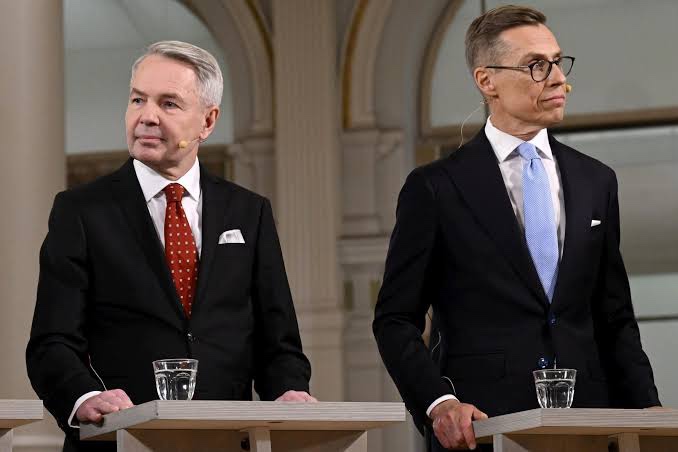Finland elects president in new geopolitical landscape

In the Finnish presidential elections held on Sunday, the nation’s voters faced a crucial decision amidst heightened tensions with neighboring Russia and Finland’s recent NATO membership.
The electorate of 4.3 million had to choose between two seasoned politicians: former conservative prime minister Alexander Stubb and ex-foreign minister Pekka Haavisto, who ran as an independent despite his Green Party affiliation.
At the onset of the voting process in Helsinki, Erja Vanhanen, 59, emphasized the importance of selecting a leader with strong values, particularly in advocating for minority rights and taking decisive stances on pertinent issues.
The new president’s foremost challenge will be navigating the evolving geopolitical dynamics in Europe, especially in light of Finland’s NATO membership and its extensive border with Russia. Although the president’s powers are limited compared to those of the prime minister, the role holds significant influence over the country’s foreign policy and serves as the supreme commander of Finland’s armed forces.
Relations between Moscow and Helsinki soured after Russia’s invasion of Ukraine in 2022, prompting Finland to abandon its longstanding military non-alignment and join NATO in April 2023. The repercussions of this decision were swiftly felt, with Russia issuing warnings of retaliatory measures.
The candidates’ positions on foreign policy, particularly regarding Russia, were crucial factors in the election. Both Stubb and Haavisto advocated for additional sanctions against Moscow and expressed solidarity with Ukraine’s struggle for independence. Their shared vision was underscored during a televised debate, where they echoed support for Ukraine and called for increased assistance from the European Union.
While the candidates share similarities in their approach to foreign policy, nuances exist in their stances on certain issues, such as Finland’s involvement in NATO’s nuclear policy. Haavisto opposes the storage or transport of nuclear weapons on Finnish soil, whereas Stubb advocates for a more inclusive approach to NATO’s nuclear deterrence strategy.
As the polling stations closed on Sunday evening, voter turnout was anticipated to be high, reflecting the electorate’s engagement in the decision-making process. The outcome of the election will not only shape Finland’s foreign relations but also reverberate across the broader geopolitical landscape of Europe.












